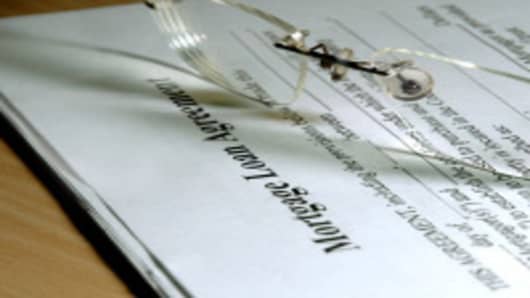The Realtors say it, the home builders say it, and now the chairman of the Federal Reserve is saying it: “Some creditworthy borrowers are still having trouble getting a mortgage.”
Loose mortgage underwriting is largely blamed for the housing crash, and as a result the credit markets have swung in the opposite direction, some say too far.
“You’ll see fewer willing lenders at 660 than you do at the top end of the scale,” notes Bankrate.com’s Greg McBride, referring to FICO scores (Fair Isaac Corporation).
Twenty five percent of Americans today have a FICO credit score lower than 650, and twelve percent more are below 700. While the Federal Housing Administration (FHA), the government’s mortgage insurer, is supposed to be serving borrowers with lower credit scores, the average FICO for an FHA loan in March was 701.



